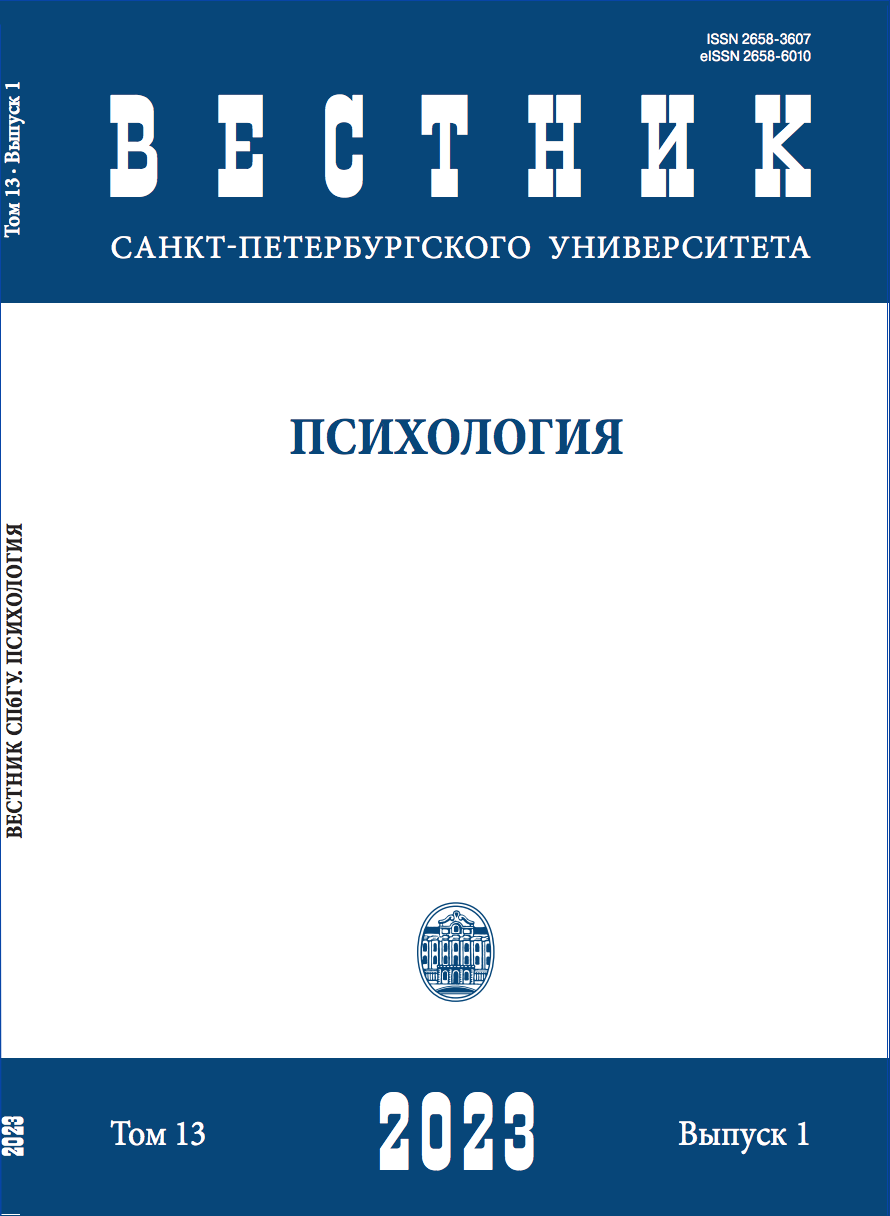The role of values and involvement of young people in various forms of activity in the preference of the online/offline environment
DOI:
https://doi.org/10.21638/spbu16.2023.103Abstract
The paper analyzes the role of values and involvement of young people in various forms of social activity in the preference of online or online environment. The relevance of such a research design is related to the need to determine the determinants of the preference for the environment of social activity in a situation of total digitalization of society. The purpose of the study is to analyze the role of values and realized forms of social activity of young people in the preference of the online/offline environment. The study involved 442 people, average age M = 21.82; SD = 6.23 (men — 33.5 %, women — 64.5 %). We have suggested that the preference for an online or offline environment may be due to involvement in various forms of activity and values, as well as their joint effect. The design of the study assumed the use of the regression method and the method of structural modeling. The following techniques were used. To identify the degree of involvement in various forms of activity, a modified questionnaire was used, built according to the type of direct scaling (Shamionov et al.), the analysis of values was carried out using the Schwartz’s technique “Portrait value questionnaire”, the degree of trust was revealed using the technique “Scale of social trust” by I. Yu. Leonova and I. N. Leonova. The determining role of the Internet-network and Internet search, leisure and subcultural (positive) and religious and sports and wellness (negative) has been established activity in preference to the online environment; sports and recreation, family, and household, cultural and mass, Internet search (positive) and protest (negative) activity in the offline environment preferences. The values of stimulation, power-dominance (positive) and tradition (negative) determine the preference for the online environment, and independence-actions, stimulation, tradition (positive) and interpersonal conformity (negative) — the preference for the offline environment. The joint effect of values and involvement in different forms of activity in the preference of the online/offline environment is revealed. The preference of the online environment in the implementation of social activity is associated with social distrust. The research results can be used to develop programs to balance the preferences of the activity environment.
Keywords:
young people, social activity, online environment, offline environment, values
Downloads
References
References
Downloads
Published
How to Cite
Issue
Section
License
Articles of "Vestnik of Saint Petersburg University. Psychology" are open access distributed under the terms of the License Agreement with Saint Petersburg State University, which permits to the authors unrestricted distribution and self-archiving free of charge.




